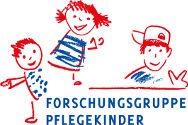Anne T. Steenbakkers, MSc, University of Groningen
| Presentation as PDF Download |
Abstract:
|
|
Many foster children experience neglect, abuse or other traumas prior to placement in foster care, and they bring these experiences with them into the foster family. There is a high incidence of complex trauma, behavioral problems and school problems among foster children, which can result in placement breakdowns. Besides dealing with a difficult past, being in foster care can make a child feel different from peers, even though he/she would prefer to be considered ‘a child like any other’. Understanding how foster children perceive the impact of being a foster child with a troublesome past can inform foster parents and professionals how to meet their needs. Episodic interviews were conducted with 12 (alumni) foster youth aged 15-23. We asked them about their experiences in care, the impact of their past on themselves and their foster family, and how both impact them as young adults. One of the major themes emerging after coding the interviews and clustering codes into themes was ‘talking (or not talking)’ about experiences, both in care and before entering care, with foster parents, biological parents, professionals and friends. In a next step, this theme will be more deeply analyzed. Results of this analysis will be presented. Since talking is a major tool used to help foster children integrate in the foster family and make sense of their past, knowing children’s experiences about this topic can guide professionals and foster parents in how to best use this tool and adapt it to different foster children. Keywords: foster children’s voices – psychosocial needs – talking |
